VFW Post 6472 "


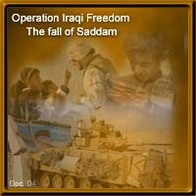
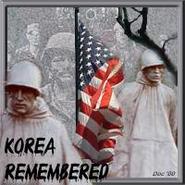
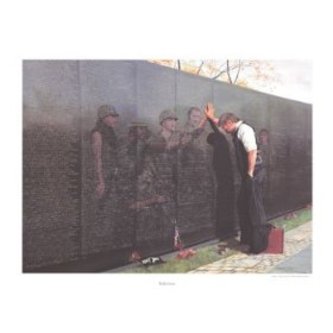
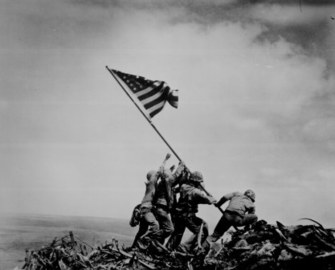
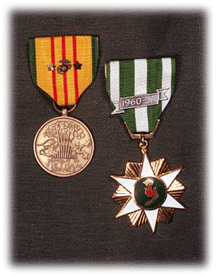
Fateful Day’
‘Twas the day before that fateful day,
December Sixth I think they say.
When leave trucks passed Pearl Harbor clear
The service men perched in the rear.
No thought gave they, of things to come.
For them, that day, all work was done.
In waters quiet of Pearl Harbor Bay,
The ships serene, at anchor lay.
Nor did we give the slightest thought
Of treacherous deeds by the yellow lot.
Those men whose very acts of treason,
Are done with neither rhyme nor reason.
For if we knew what was in store
We ne’re would leave that day before.
For fun and drink to forget the war
Of Britain, Europe, and Singapore.
For all of us there was no fear
This time of peace and Christmas cheer.
Forget the axiom, might is right,
Guardians of Peace, were we that night.
We passed the sailors in cabs galore,
Those men in white who came ashore.
But some will ne’re be seen again,
In care-free fun, those sailor men.
The Sabbath Day dawned bright and clear,
A brand of fire ore the lofty spear,
Of Diamond Head, Hawaii’s own.
A picture itself that can’t be shown,
Unless observed with naked eye,
That makes one look, and stop, and sigh.
What more could lowly humans ask
To start upon their daily task.
The men asleep in barracks late,
Knew no war, that morn at eight.
The planes on fields, their motors cold,
Like sheep asleep among the fold.
The ships at anchor with turbines stilled,
Their crews below in hammocks filled.
And faint, as tho it were a dream,
A sound steels on upon this scene.
A drone of many red tipped things,
The Rising Sun upon their wings.
Those who saw would not believe,
And those that heard could not conceive.
A single shocking, thundering roar,
Followed by another and many more.
To rob the sleep from weary eyes,
Or close forever those that died.
A hot machine gun’s chattering rattle,
Mowed men down like herds of cattle.
A bomb destroys an air plane hangar,
The planes within will fly no more.
Bombs explode upon a ship,
Blasting men into the deep,
To sink without the slightest thought
Of what brought on this hell they caught.
What seems like years, the horrible remains,
Blasting men and ships and planes.
And just as quick as they had come,
Away they went, their foul deeds done.
To leave the burning wreckage here,
The scorching hulks of dead ships there.
And blasted forms of dying men,
Alive in hell, to die again.
At night the skies were all but clear,
The rosy glow of a white hot bier,
Showed on clouds the havoc wrought,
And greedy flames the men still fought.
But from the ruins arose this cry,
That night from those who did not die,
“Beware Japan we’ll take eleven,
For every death of December Seven.”
And from that day there has arisen,
A cry for vengeance, in storms they’re driven.
This fateful day among the ages,
Shall stand out red in Hist’rys pages.
Those men whom homefolk held so dear,
Will be avenged, have no fear.
And if their lives they gave in vain,
Pray, I too, may not remain.
Fremont “Cap” Sawade is 91 and his eyesight is fading. He can’t read the poem he wrote all those years ago, right after Pearl Harbor.
Dec. 7, 1941 was a sunny Sunday morning. Sawade, assigned to an Army anti-aircraft regiment, was in Honolulu on liberty, having breakfast. Loud explosions sent him racing to his base in a cab. He could see the Japanese planes flying low, dropping bombs and strafing battleships with machine gun fire.
“I was just plain mad,” he said.
Back at Camp Malakole, Sawade ducked for cover when the Zeros strafed it, too. How unexpected was the attack? Sawade said his unit didn’t even have ammunition for their big guns.
Two days later, with the wreckage of the Pacific Fleet still smoking, he sat at a desk at Hickam Field and started writing a poem. He’d never written one before. He hasn’t written one since. But over the next week, this one flowed out of him.
He called it “The Fateful Day.”
It captures how idyllic life was, before. How lucky the service members felt to wake up every day with a view of Diamond Head.
It captures their surprise, and then their anger at the Japanese, including a slur that was common then, offensive now. It captures the horror — “A hot machine gun’s chattering rattle/Mowed men down like herds of cattle” — and the raw thirst for vengeance.
“The poem was just a heartfelt thing,” Sawade said. “It was a very emotional time when I wrote it.”
He came home from the war to his native San Diego, worked a variety of jobs, including 10 years as a building inspector for the city of El Cajon. He got married and raised a family and lives now in Rancho Bernardo with his second wife, Gloria.
Over the years, he showed the poem to a few friends. He shared it a time or two in military newsletters. But the truth is he never thought it was anything special.
Museum piece
Rod Bankhead is Sawade’s son-in-law, and a military vet himself. He served in the Air Force during Vietnam. A student of World War II, “I have enormous respect for everybody who lived through that and did what they did,” he said.
In January, he read the poem for the first time. It moved him because of the way it documents “all the shock, agony and emotional resolve of those young men and women who became the very fabric of the Greatest Generation.”
He thought others should see it, too — now and forever.
He wrote first to President Obama, seeking his help in getting the poem put on display at the Smithsonian. He contacted Sen. Dianne Feinstein with a similar request.
Feinstein’s office reached out to the Smithsonian, which suggested the National World War II Museum in New Orleans might be a better place for it.
Bankhead had a trophy company in Carlsbad turn the poem into a wooden plaque. He sent it to the museum shortly before Memorial Day
Now it’s Sawade’s turn to be moved. “I never thought much of the poem until Rod got ahold of it,” he said. “Now I’m just really proud.” Saturday, family members gathered in Rancho Bernardo to honor him.
It’s not clear what the museum plans to do with the plaque, but Bankhead said he hopes it will go on display so that visitors can read the poem and “fully grasp the experience, passion and patriotism that it portrays.”
There are actually two copies of the wooden plaque. The second hangs on a wall in Sawade’s house, right next to his favorite chair. The poem is etched into the wood. Even though he can’t read the words, he can feel them.
Dec. 7, 1941 was a sunny Sunday morning. Sawade, assigned to an Army anti-aircraft regiment, was in Honolulu on liberty, having breakfast. Loud explosions sent him racing to his base in a cab. He could see the Japanese planes flying low, dropping bombs and strafing battleships with machine gun fire.
“I was just plain mad,” he said.
Back at Camp Malakole, Sawade ducked for cover when the Zeros strafed it, too. How unexpected was the attack? Sawade said his unit didn’t even have ammunition for their big guns.
Two days later, with the wreckage of the Pacific Fleet still smoking, he sat at a desk at Hickam Field and started writing a poem. He’d never written one before. He hasn’t written one since. But over the next week, this one flowed out of him.
He called it “The Fateful Day.”
It captures how idyllic life was, before. How lucky the service members felt to wake up every day with a view of Diamond Head.
It captures their surprise, and then their anger at the Japanese, including a slur that was common then, offensive now. It captures the horror — “A hot machine gun’s chattering rattle/Mowed men down like herds of cattle” — and the raw thirst for vengeance.
“The poem was just a heartfelt thing,” Sawade said. “It was a very emotional time when I wrote it.”
He came home from the war to his native San Diego, worked a variety of jobs, including 10 years as a building inspector for the city of El Cajon. He got married and raised a family and lives now in Rancho Bernardo with his second wife, Gloria.
Over the years, he showed the poem to a few friends. He shared it a time or two in military newsletters. But the truth is he never thought it was anything special.
Museum piece
Rod Bankhead is Sawade’s son-in-law, and a military vet himself. He served in the Air Force during Vietnam. A student of World War II, “I have enormous respect for everybody who lived through that and did what they did,” he said.
In January, he read the poem for the first time. It moved him because of the way it documents “all the shock, agony and emotional resolve of those young men and women who became the very fabric of the Greatest Generation.”
He thought others should see it, too — now and forever.
He wrote first to President Obama, seeking his help in getting the poem put on display at the Smithsonian. He contacted Sen. Dianne Feinstein with a similar request.
Feinstein’s office reached out to the Smithsonian, which suggested the National World War II Museum in New Orleans might be a better place for it.
Bankhead had a trophy company in Carlsbad turn the poem into a wooden plaque. He sent it to the museum shortly before Memorial Day
Now it’s Sawade’s turn to be moved. “I never thought much of the poem until Rod got ahold of it,” he said. “Now I’m just really proud.” Saturday, family members gathered in Rancho Bernardo to honor him.
It’s not clear what the museum plans to do with the plaque, but Bankhead said he hopes it will go on display so that visitors can read the poem and “fully grasp the experience, passion and patriotism that it portrays.”
There are actually two copies of the wooden plaque. The second hangs on a wall in Sawade’s house, right next to his favorite chair. The poem is etched into the wood. Even though he can’t read the words, he can feel them.
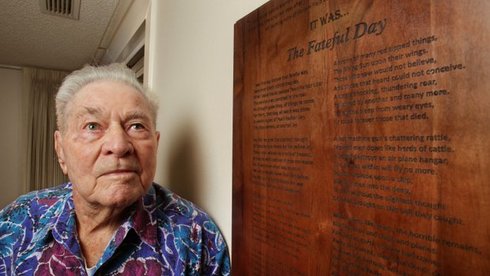
Below is the Poem Fremont Cap Sawade
wrote at Pearl harbor
wrote at Pearl harbor
Fremont “Cap” Sawade is 91